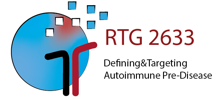MD B9: Testing substances influencing the protein biosynthesis in the human skin organ culture model for pemphigus vulgaris
Pemphigus vulgaris (PV) is an autoimmune blistering disease, specifically targeting the skin and mucous membranes. IgG-autoantibodies against desmogleins 3 (dsg3) and/or dsg1 are characteristics of PV. Their influence against the named autoantigens in the skin cause the adhesions between keratinocytes to disrupt, resulting in intraepidermal blistering, known as acantholysis, which can also be observed in mucosal areas. This can be potentially life-threatening to patients, like other autoimmune skin blistering diseases. Current options of therapy involve high dose, systemic prednisolone, a glucocorticosteroid (for general immunosuppression), immunoapheresis of circulating antibodies, and intravenous administration of immunoglobulins, including the anti-CD20-antibody rituximab.Immun osuppression is the main effect of these approaches, resulting in a significant numbeof side-effects.I will be testing substances influencing protein biosynthesis in the human skin organ culture model (HSOC) for pemphigus vulgaris. The aim is to clarify if these substances reduce the amount of split formation in the HSOC, so that they could potentially function as a therapeutic option in the future to stop new blisters from forming in patients suffering from pemphigus vulgaris.

- Projects
- 1st Generation
- 2nd Generation
- A: Defining Autoimmune Pre-Disease
- B: Targeting of Autoimmune Pre-Disease
- Associated projects
- Medical doctoral researcher projects
- Concluded projects
- Medical doctoral researchers
- MD A20: Molecular and cellular characterization of aging effects in liver and plasma in mice
- MD A21: Kinase activity profiling of autoantibody-mediated angiotensin II type 1 receptor signaling in endothelial and immune cells
- MD A22: Systemic lupus erythematosus and fibromyalgia syndrome – movement as a biomarker for pain perception
- MD A24: Unveiling PTX3: A novel biomarker in the pathogenesis and progression of bullous pemphigoid
- MD B8: Deciphering the signaling events in desmoglein 1 and 3 antibody-induced pathology to investigate possible impacts for the onset of new autoimmune reactions
- MD B9: Testing substances influencing the protein biosynthesis in the human skin organ culture model for pemphigus vulgaris
- MD B10: Testing ion channel inhibitors in the human skin organ culture model for pemphigus vulgaris
- MD B11: Nutritional treatment study to improve inflammatory IgG Fc glycosylation
- MD B12: Resting heart rate as a prognostic marker for fatigue in primary Sjoegren's syndrome
- MD B13: Deciphering the signaling events in BP180 antibody-induced pathology to investigate possible impacts for the onset of new autoimmune reactions
- MD B14: Selective depletion of antigen-specific autoantibodies by targeted degradation
- Medical doctoral researchers






